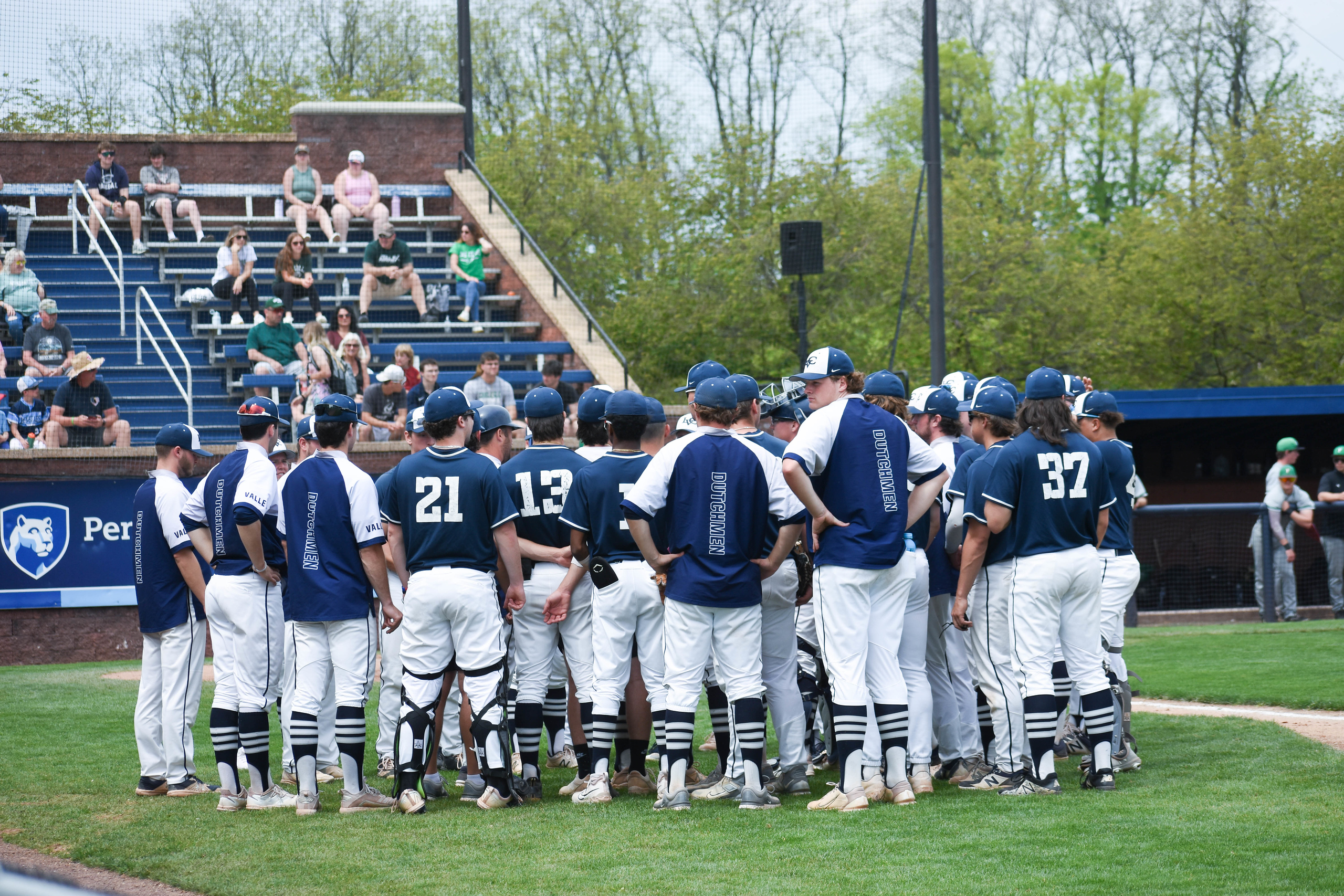
(By Liam McFarlane ’27, special contributor)
“Playing baseball at the next level wasn’t always the plan,” Parker Raham, the right-handed pitcher hailing from Scotch-Plains, New Jersey, said.
“There was a time when I didn’t even think I could play this game again.”
The pain was as sudden as it was painful. As he let go of the ball, Raham felt what all pitchers fear in his right elbow, and he knew in his heart that something was off. However, like many pitchers before him, he made an effort to ignore it.
A torn UCL is every pitcher’s nightmare. For some, it’s the end of their story. For Raham, it was just another challenge.
“I knew it was bad,” Raham said. “But I also knew I wasn’t done.”
Raham wasn’t well-known as a pitcher who had committed to play at Lebanon Valley College. He wasn’t prepared to leave the game, though. He decided to take the difficult route instead, enduring painful rehabilitation, surgery and countless hours spent retraining his arm to do what he had done for the past 14 years of his life.
Some questioned his decision. Why go through all this for a small-school baseball career? Raham had an answer.
“I love the game,” he said. “It’s given me everything. So, I owed it to myself to at least try.”
Rehab wasn’t easy. There were days he doubted himself. Days when progress felt impossible. But he wasn’t alone.
“My coaches, teammates, my family—everyone kept me going,” Raham said. “They reminded me why I started in the first place.”
He corrected his mechanics and regained his strength under the supervision of trainers. He strengthened his arm care techniques and learned to listen to his body. He began concentrating on conditioning, flexibility and pitching with less elbow strain.
This kind of injury is a barrier for many athletes. It became motivation for Raham. He wanted to prove that failures do not define a person.
“You can’t control injuries,” Raham said. “But you can control how you respond.”
Now, as he steps back onto the mound, he’s pitching not just for himself, but for every athlete who’s faced adversity.

